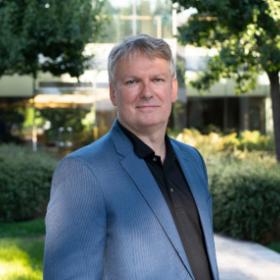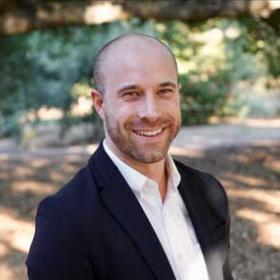
Berkeley Cyber Summit: Day II
EWI’s seventh Cyber Summit Holds Key Dialogues and Discussions on Day II
Bruce McConnell, global vice president of the EastWest Institute, and Betsy Cooper, executive director of the Center for Long-term Cybersecurity at UC Berkeley, opened the second day of the EastWest Institute’s Global Cyberspace Cooperation Summit VII.
1st Keynote Address
Ms. Getao provided a unique viewpoint from the Global South where there remains a distinct divide as to how developing nations fit in the context of the cybersecurity dialogue. Is the south the weakest link in the cyber global chain? What are the expectations of both sides to the other?
She sees a trust gap in three areas: supply chain integrity; “political engineering,” or the use of social media to influence the citizen mindset; and the use of developing nations as proxies in cyber attacks. Ms. Getao closed by recommending that all nations, regardless of geographic position or economic status, reduce adversarial positions and drive trust to help solve one another’s problems…and offered to host the next EWI Cyber Summit in Africa.
2nd Keynote Address
Peter Altabef delivered the second keynote focusing on Smart Cities. He pointed out that demographic and technology trends are creating rapid urbanization, and the opportunity to reinvent how cities approach public services, finding the right mix between information and communications technology, urban planning and public-private partnerships.
He emphasized that the next step in this evolution is to move from “smart” to “smart and safe” cities, ensuring steps are taken to keep digital assets and communities safe. This requires a balance between four factors: Cybersecurity, Personal Safety, Health, and Infrastructure Security. Critical to this, Mr. Altabef explained, is the consistent collaboration between enterprises, institutions and governments.
Directly following were two plenary panels.
PLENARY PANEL I: THE STATE OF CYBER COOPERATION
While governments, companies and civil society depend on a safe and reliable cyber environment, no one actor can ensure its security. A distinguished panel of seven experts provided perspectives from Cambodia, Estonia, Germany, the Netherlands, Russia and the U.S., along with the private sector insights of Microsoft. All participants agreed that, more than ever, there is a need for multi-party industry cooperation toward the creation of new norms of governance and policies. There was a consensus among the speakers that cyber dialogues need to be part of global diplomacy between nations. In this respect, the evolving UN GGE initiatives continue to have merit and should be deepened and adopted universally.
From the private sector perspective, enterprises (and their ICT platforms) have become first responders in times of cyber conflict. As such, the need exists to bridge between engineers in enterprise and government, moving beyond tech discussions to include broader public policy dialogue.
The comment was made that the growth of ICT and connectivity represents a “once in a generation shift in opportunity and power”—consequently driving a certain level of insecurity in some quarters. This reality should spur more private/public cyber collaboration.
PLENARY PANEL II: GLOBAL COMMISSION ON THE STABILITY OF CYBERSPACE (GCSC)
Marina Kaljurand, chair of the GCSC, and five Commissioners took the stage to convey to audiences the mission and vision of this first of its kind body—formed to develop proposals for norms and policies to enhance international cybersecurity and stability. Importantly, Kaljurand made clear that the GCSC will serve as a complementary body to other existing global initiatives.
The panel fielded a series of questions, touching upon key areas such as critical infrastructure and costs. The panel noted that an agreed definition of critical infrastructure still does not exist, posing a significant roadblock. Developing a universally accepted norm in this area is a likely objective of the GCSC.
Concerning costs, panelists discussed expenses associated with cybersecurity and the financial investment involved. Overwhelmingly, there exists a fundamental divide—three nations are responsible for much of cyber aggression globally, while the majority of tech organizations are spending an enormous amount of time and funds to defend themselves against these attacks.
Breakthrough Group Sessions
The afternoon saw a continuation of breakthrough group sessions, building on Tuesday’s lineup. These included: Ubiquitous Encryption and Lawful Government Access, Secure ICT Products and Services, Promoting Norms of Responsible Behavior in Cyberspace, Resilient Cities and the Internet of Things, Systemic Risk and Cyber Insurance. A special interest session covered a topic with tremendous relevance to recent events—Election Systems Security.
Reports on each of the breakthrough group will be made available on the final day of the Summit.
Looking Forward
Please check back for an update on activities concerning the remainder of the Summit.
For more information about the Summit, click here.
To view the Day III plenaries via livestream, click here.
Follow us on Twitter at @EWInstitute for live updates! Use the hashtag #EWIcyber to join in the conversation.
Click here for Day I
Click here for Day III


